
How does medicinal plant trade influence economies in West Asia and the Middle East?
Medicinal plants play a pivotal role in the international commodity trade, particularly within the Middle East and West Asia. These regions, known for their rich biodiversity and cultural reliance on herbal remedies, are increasingly becoming hubs for the import and export of medicinal plants. Verified exporters and importers leverage B2B marketplaces in Asia to connect buyers and sellers of medicinal plants, facilitating trade through regional product listings and market insights. Popular medicinal plants include wild herbs, native species, and economically vital plants like 121110, 121120, and 121190. Applications range from traditional medicine to modern pharmacology, highlighting their dual role in preserving heritage and advancing health sciences. The trade landscape is shaped by supply chain solutions that ensure transparency, quality, and efficiency. Industrial crops such as oilseeds and textiles complement the medicinal plant market, as they often share logistical networks. Similarly, the seed and seedling market in West Asia supports the cultivation of medicinal plants and other crops, fostering sustainability.
Import and export activities of medicinal plants represent significant economic opportunities, with demand driven by expanding pharmaceutical industries and consumer preferences for natural remedies. In addition to medicinal plants, the Middle East and West Asia commodity ecosystem thrives on the trade of vegetables, fruits, cereals, legumes, poultry, fisheries, flowers, and livestock. For example, summer crops like pumpkin, eggplant, beans, and cucumber are traded via robust supply chains, while fruit imports and exports reflect dynamic market trends. Livestock and poultry markets further diversify agricultural trade. Platforms like Aritral, through AI-driven solutions, simplify these transactions by enabling direct communication, verified profiles, and global marketing strategies. The medicinal plant trade"s integration into broader agricultural and commodity markets underscores its importance in shaping regional economies, blending tradition with innovation, and catering to evolving global health trends. "
-
 White Herbs 3 months ago
White Herbs 3 months ago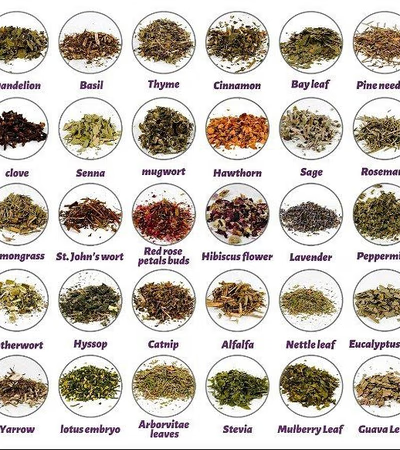 Egypt
We export all kinds of herbs spices we is at your request every time
Egypt
We export all kinds of herbs spices we is at your request every time
🔹 Premium Dry Agricultural Crops for Export – Highest Quality Available! 🔹White Herbs Company provides top-quality dry agricultural crops for export, ...Details
-
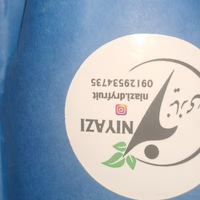 Niazi 3 months ago
Niazi 3 months ago Iran
Ferula Plant
Iran
Ferula Plant
Ferula plant with high medicinal propertiesDetails
-
 Awlad Danqal 3 months ago
Awlad Danqal 3 months ago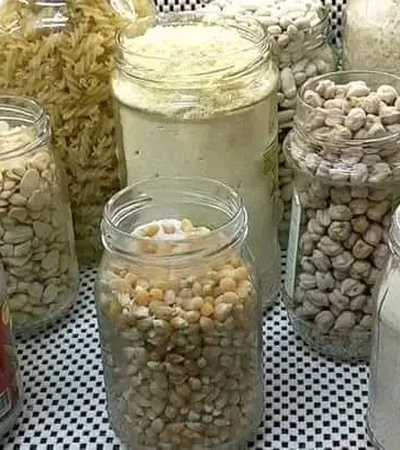 Egypt
Legumes
Egypt
Legumes
All kinds of legumes, rice, fresh vegetables, dried fruits, nuts, seeds, livestock, stallions, camels, Barqi sheep, goats, deer, ostriches, peacocks, ...Details
-
 Rouhollah Kordzanganeh 3 months ago
Rouhollah Kordzanganeh 3 months ago Iran
Rice and Precious Stones
Iran
Rice and Precious Stones
1. Selling 100% organic local rice without the use of pesticides and chemical fertilizers, traditionally cultivated with the best aroma and taste. Pre...Details
-
 Nader 3 months ago
Nader 3 months ago Egypt
The Miswak and the Prayer Cap
Egypt
The Miswak and the Prayer Cap
Fresh green miswakDetails
-
 Shad Mohammad Valizadeh 3 months ago
Shad Mohammad Valizadeh 3 months ago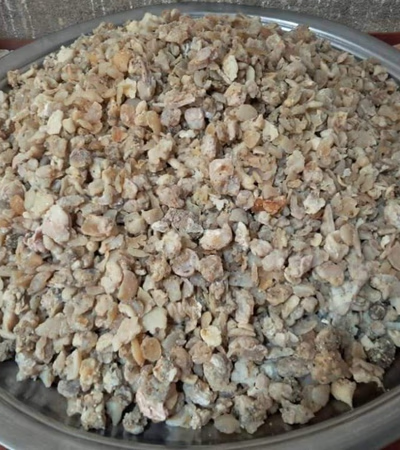 Afghanistan
Hing or Angoozeh
Afghanistan
Hing or Angoozeh
Hing or Angoozeh is a completely natural plant and medicine that is used for healing.Details
-
Animal Feed Trade in West Asia and the Middle East

The animal feed sector plays a pivotal role in the agricultural and livestock economies of the Middle East and West Asia. This market encompasses a diverse range of feed types, including fodder, cereals, legumes, seeds, and industrial crops, tailored to meet the dietary needs of livestock, poultry, and aquaculture. Given the region"s dependence on imports for many agricultural commodities, the trade of animal feed is a highly dynamic and competitive industry, with significant opportunities for exporters and importers alike. West Asia"s reliance on imported animal feed, such as corn (HS code 100510) and fodder grasses (HS codes 121410, 121490), demonstrates the importance of streamlined supply chain solutions. Verified exporters and importers on Middle Eastern and Asian B2B trade platforms are increasingly seeking partners to meet growing demand, driven by the region"s burgeoning poultry, dairy, fishery, and livestock sectors. For instance, cereals and legumes like beans (HS code 071310) and green beans (HS code 071350) remain critical components of animal diets, while oilseeds and industrial crops contribute to the production of feed additives and supplements. In addition to cereals and legumes, the market for medicinal plants and seeds, essential for high-quality animal nutrition, has seen a rise in interest. Local businesses are leveraging regional product listings on trade advertising platforms to source economical options for feed.
Market insights provided by these platforms help stakeholders navigate the complexities of quality assurance, pricing, and logistics. Aritral, an AI-enabled B2B marketplace, simplifies these transactions by offering tools such as product listings, direct communication, and AI-powered marketing. This ensures transparency and efficiency in the animal feed trade, making it easier for businesses to explore opportunities and expand their networks in the Middle East and West Asia. "
-
Middle East Grains and Legumes Trade Insights

The trade of cereals and legumes plays a pivotal role in the Middle East and West Asia’s agricultural and economic framework. As staple foods, grains such as wheat, barley, and corn, along with legumes like chickpeas, lentils, and beans, are integral to regional diets and trade. With growing population demands and shifting agricultural patterns, the import and export of these commodities have seen dynamic changes, driven by both domestic consumption and international trade partnerships. West Asia farmers cultivate a range of grains and legumes, contributing to regional supply chains. However, gaps in production often necessitate imports, especially for high-demand products like lentils and wheat. Verified exporters and importers on B2B marketplaces across Asia have stepped in to streamline trade activities, offering transparency and efficiency. Platforms like Aritral provide direct communication channels, AI-powered marketing tools, and product listing solutions to simplify cross-border transactions of cereals and legumes. The international market for grains and legumes in the Middle East is influenced by seasonal yields, geopolitical factors, and price fluctuations.
Countries like Iran, Iraq, and Saudi Arabia are key importers, sourcing products to meet their increasing consumption needs. The per capita consumption of grains and legumes in these regions underscores their cultural and nutritional importance, with chickpeas and lentils widely used in traditional dishes. Efficient supply chain solutions are critical for ensuring timely delivery and quality assurance in the trade of cereals and legumes. Regional B2B networks are increasingly focusing on providing market insights, verified supplier databases, and trade advertising platforms to connect buyers and sellers effectively. The integration of ancillary industries, such as animal feed and industrial crops, further strengthens the trade ecosystem. Through data-driven strategies, businesses can capitalize on emerging trends and demand patterns in West Asia’s commodity markets. Aritral, as an AI-driven B2B platform, offers tailored solutions for businesses engaging in international trade, particularly in the agricultural sector, ensuring seamless buying, selling, and networking opportunities.
-
Chickens and Poultry Market Dynamics in West Asia

The chickens and poultry market in West Asia and the Middle East plays a pivotal role in regional trade dynamics and dietary preferences. Poultry, particularly chicken, remains a staple protein source for Middle Eastern and Asian populations due to its affordability, versatility, and cultural significance in halal diets. The region’s reliance on imports and exports of poultry products has created a vibrant international market, with major trading hubs leveraging B2B marketplaces to connect verified exporters and importers. West Asia’s poultry trade ecosystem is deeply intertwined with broader agricultural commodities such as cereals, legumes, and animal feed, which form essential components of poultry farming. The demand for high-quality chicken products (e. g. , frozen cuts and fresh meat under codes 020711 to 020732) is met through robust supply chain solutions facilitated by platforms offering regional product listings and market insights. A growing interest in poultry breeding, coupled with advancements in biosecurity and sustainable farming practices, is reshaping the industry.
This evolution aligns with consumer trends emphasizing traceability and ethical sourcing. Verified exporters and importers leverage trade advertising platforms and business networking opportunities to expand cross-border transactions in chickens, poultry, and birds. Additionally, the poultry industry complements the trade of vegetables, fruits, and medicinal plants in the Middle East, as these commodities often share logistical networks. For instance, summer crops like tomatoes, cucumbers, and beans are integrated into poultry farm diets as supplementary feed. Similarly, the fishery and livestock sectors contribute to holistic agricultural trade strategies in West Asia. Aritral, an AI-driven B2B platform, supports the seamless buying, selling, and exporting of poultry products in the Middle East and Asia. Through its tools like product listing and AI-powered marketing, Aritral enhances trade efficiency and transparency while facilitating connections in the global commodity ecosystem.
-
Middle East Fishery and Commodity Trade Insights
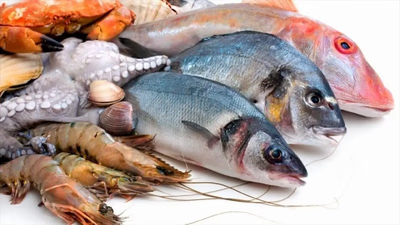
The Middle East and West Asia represent dynamic hubs for the fishery and aquatic products market, driven by growing demand for seafood such as fish, crab, shrimp, and other aquatic meats. The region’s strategic position as a trade corridor enhances its role in importing and exporting fisheries, with key participation from verified exporters and importers utilizing regional B2B marketplaces. The West Asian International Fisheries and Seafood Market is expanding, catering to rising seafood consumption trends in Arab countries. Commodities like shrimp and fish have become staples in trade, supported by robust supply chain solutions and market insights that enable efficient transactions. Beyond fisheries, the Middle East is diversifying its commodity trade to include vegetables, fruits, livestock, and medicinal plants. Summer crops like pumpkin, beans, tomatoes, and cucumbers, alongside industrial crops such as oilseeds, are staple imports and exports. Verified suppliers list these products on trade platforms, enabling seamless buying and selling across borders. The market for seeds, seedlings, and animal feed is also thriving, supporting agriculture and livestock sectors in the region.
Cereals and legumes, critical to food security, see steady trade flows, underscoring West Asia’s role as a vital commodity ecosystem. Livestock and poultry trade is another growing sector, with chickens and poultry in high demand due to increasing protein consumption in the Middle East. Ornamental flowers and medicinal plants are gaining traction, creating niche markets for specialized suppliers. These diverse trade sectors are interconnected by the region’s advanced networking platforms and trade advertising tools, which provide businesses with actionable market insights and direct communication channels. Platforms such as Aritral streamline these processes by offering product listings, global sales assistance, and AI-driven marketing strategies, ensuring seamless trade execution. As West Asia’s trade landscape evolves, opportunities in fisheries and agricultural commodities will continue to expand, driving regional economic growth.
-
Global Fruit Trade in West Asia and Middle East Market Insights

The Middle East and West Asia represent crucial hubs for the global trade of fruit and agricultural commodities. With a growing demand for fresh produce, these regions are actively shaping international trade dynamics across sectors including fruits, vegetables, livestock, medicinal plants, industrial crops, and more. Notably, the fruit market in West Asia showcases a diverse spectrum of products such as grapes (080610), melons (080711), and apples (080810), which are prominently imported and exported through verified exporters and importers on B2B marketplaces. The region"s cultural and religious significance of fruit further enhances its role in traditional medicine and dietary customs. Seasonal fruits, like citrus (080510) and stone fruits (080420), are highly sought after due to their relevance in both culinary and medicinal practices. Supply chain solutions in West Asia focus on optimizing these trade flows, leveraging regional product listings and market insights to ensure efficiency. Import-export platforms, including AI-driven trade advertising solutions like Aritral, enable seamless transactions by connecting buyers and sellers and facilitating direct communication. In addition to fruits, the vegetable market—featuring summer herbs, tomatoes, cucumbers, and green beans—also thrives in the Middle East.
Livestock trade (e. g. , chickens, poultry, and fishery products) complements agricultural commerce, creating a balanced commodity ecosystem. Cereals and legumes further bolster the trade network, providing essential animal feed and dietary staples. The international fruit market in West Asia is influenced by factors such as climate conditions, transportation infrastructure, and cultural preferences. Verified exporters and importers rely on business networking opportunities and data-driven market strategies to maintain competitive edges. As demand grows, the role of platforms like Aritral becomes critical in simplifying complex trade processes and fostering regional economic growth. "
-
Industrial Crop Trade in Middle East and West Asia
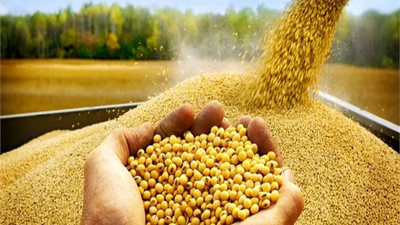
Industrial crops play a pivotal role in shaping the agricultural trade landscape of the Middle East and West Asia. These crops, including oilseeds (soy, sesame, rapeseed, castor) and other non-edible plants, are crucial commodities for industries such as textiles, biofuels, and manufacturing. The region’s demand for industrial crops is driven by its growing industrialization and its strategic role as a trade hub connecting Asia, Europe, and Africa. Cotton and linen, for example, are highly sought-after in the textile industry, while oilseeds cater to diverse sectors, from food processing to chemical production. The Middle East trade platform and B2B marketplace Asia facilitate seamless transactions between verified exporters and importers. Suppliers and sellers of industrial crops in West Asia benefit from advanced supply chain solutions that ensure timely delivery and quality assurance. Regional product listings on these platforms enhance market visibility and foster competitive pricing. Market insights reveal a steady growth trajectory for industrial crops, bolstered by increasing global consumption and the region’s strategic focus on diversifying its economy.
In addition to industrial crops, the trade market includes vegetables, fruits, medicinal plants, cereals, legumes, and animal feed, all integral to the region’s agricultural ecosystem. For instance, the import and export of summer crops like pumpkin, eggplant, and peppers are vital for meeting domestic and regional demands. Livestock and poultry trading, alongside fisheries, further complement agricultural trade dynamics in the Middle East. Platforms like Aritral, an AI-driven B2B solution, simplify international trade for industrial crops and related commodities. By leveraging AI-powered marketing and direct communication tools, Aritral empowers businesses to optimize their trade operations and expand their reach to global markets. As the industrial crop trade continues to evolve, West Asia and the Middle East remain central to global supply chains, driving innovation and economic growth.
-
Exploring Medicinal Plant Trade in Middle East & West Asia

Medicinal plants play a pivotal role in the international commodity trade, particularly within the Middle East and West Asia. These regions, known for their rich biodiversity and cultural reliance on herbal remedies, are increasingly becoming hubs for the import and export of medicinal plants. Verified exporters and importers leverage B2B marketplaces in Asia to connect buyers and sellers of medicinal plants, facilitating trade through regional product listings and market insights. Popular medicinal plants include wild herbs, native species, and economically vital plants like 121110, 121120, and 121190. Applications range from traditional medicine to modern pharmacology, highlighting their dual role in preserving heritage and advancing health sciences. The trade landscape is shaped by supply chain solutions that ensure transparency, quality, and efficiency. Industrial crops such as oilseeds and textiles complement the medicinal plant market, as they often share logistical networks. Similarly, the seed and seedling market in West Asia supports the cultivation of medicinal plants and other crops, fostering sustainability.
Import and export activities of medicinal plants represent significant economic opportunities, with demand driven by expanding pharmaceutical industries and consumer preferences for natural remedies. In addition to medicinal plants, the Middle East and West Asia commodity ecosystem thrives on the trade of vegetables, fruits, cereals, legumes, poultry, fisheries, flowers, and livestock. For example, summer crops like pumpkin, eggplant, beans, and cucumber are traded via robust supply chains, while fruit imports and exports reflect dynamic market trends. Livestock and poultry markets further diversify agricultural trade. Platforms like Aritral, through AI-driven solutions, simplify these transactions by enabling direct communication, verified profiles, and global marketing strategies. The medicinal plant trade"s integration into broader agricultural and commodity markets underscores its importance in shaping regional economies, blending tradition with innovation, and catering to evolving global health trends. "
-
Middle East Seed and Seedling Market Insights
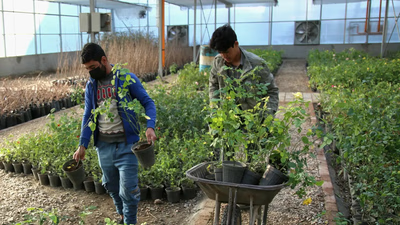
The seeds and seedlings market in the Middle East and West Asia is a vibrant and rapidly expanding sector, driven by rising agricultural demand, advanced supply chain solutions, and the integration of B2B marketplaces across the region. With a focus on vegetables, fruits, medicinal plants, and industrial crops, the region is capitalizing on its unique climate and growing import-export networks. Key products such as pumpkin, eggplant, pepper, cabbage, corn, beans, and tomatoes dominate vegetable trade, while fruits like dates, citrus, and pomegranates are critical to the Middle Eastern economy. The demand for high-quality seeds for these crops is surging, with verified exporters and importers playing a crucial role in ensuring quality and compliance. Medicinal plant trade is another growing segment, with herbs like chamomile, licorice, and fennel enjoying increased demand for their health benefits. These products not only cater to local markets but also contribute to regional and international exports. Industrial crops, notably oilseeds and fibers, are shaping the commodity trade ecosystem, as businesses explore West Asia’s verified suppliers to meet global demands. Animal feed, cereals, and legumes are vital for sustaining the livestock and poultry sectors, which are core to food security in the Middle East.
Grains such as wheat and barley, alongside legumes like lentils and chickpeas, form the backbone of this trade, supported by organized supply chains. B2B trade platforms, like Aritral, provide essential tools for connecting verified exporters and importers, facilitating transactions, and offering market insights. These platforms also enable trade solutions for fisheries, ornamental flowers, and livestock, ensuring seamless operations across the agricultural commodities spectrum. As the Middle East strengthens its position in the global market, investments in seeds, seedlings, and related agricultural sectors are set to grow further, driving economic development and regional trade networks.
-
Ornamental Flower Trade in Middle East and West Asia
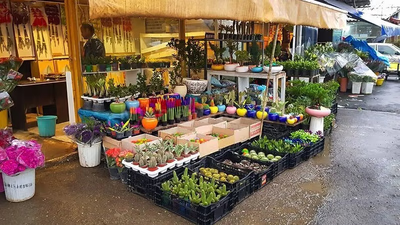
The trade of flowers and ornamental plants is a thriving segment in the commodity markets of the Middle East and West Asia. With a deep cultural appreciation for flowers, these regions have become significant players in the international market for ornamental flowers, apartment plants, and decorative greenery. Export codes such as 060110, 060120, and 060310 highlight the growing value of flowers in global trade. Demand for these products is driven by cultural events, religious ceremonies, and urban landscaping, creating a dynamic market for both suppliers and buyers. The Middle East has positioned itself as a key hub for the import and export of flowers and related commodities. Verified exporters and importers leverage B2B marketplaces across Asia to connect with global buyers, ensuring quality and compliance. Regional product listings on platforms like Aritral facilitate the marketing of ornamental plants, while AI-powered market insights streamline supply chain solutions. In addition to flowers, the broader agricultural ecosystem—including vegetables, fruits, medicinal plants, and industrial crops—has seen robust development in West Asia.
Summer crops like tomatoes, cucumbers, and eggplants are actively traded, supported by strong demand in urban centers. The livestock and poultry sectors, as well as the trade of cereals, legumes, and animal feed, complement the overall commodity network. The flower trade benefits from its integration into this ecosystem, utilizing existing logistical frameworks for efficient distribution. As cities in West Asia prioritize greening initiatives and consumers increasingly seek ornamental plants for home decoration, the supply and demand for flowers are projected to grow. Verified trade platforms play a critical role in connecting regional exporters with international markets, ensuring compliance, reliability, and scalability in operations. Platforms like Aritral simplify trade processes, offering advanced features such as AI-powered marketing and profile management for exporters and importers.
-
Livestock Trade in Middle East and West Asia: Trends and Insights

The Middle East and West Asia are central hubs of livestock trading, contributing significantly to regional economies and global supply chains. Livestock, including cattle, sheep, goats, poultry, and fishery products, form a core segment of commodity trade in these areas. With increasing demand for meat, dairy, and related products, the livestock market is thriving, supported by verified exporters and importers on B2B platforms. Supply chain solutions are critical to bridging gaps between producers and consumers across borders, ensuring quality and compliance standards. The livestock trading ecosystem in West Asia is heavily reliant on animal husbandry, a practice deeply rooted in the region"s cultural and economic fabric. Countries like Saudi Arabia, UAE, and Iran are among the largest importers and exporters of livestock, with robust trade networks facilitating movement. For buyers and sellers in this market, key considerations include health certifications, transportation logistics, and partnerships with trusted trade platforms to streamline operations. Verified regional product listings ensure transparency and trust, enabling a seamless buying and selling experience.
Beyond livestock, the Middle East and West Asia also dominate trade in agricultural commodities such as cereals, legumes, vegetables, fruits, and medicinal plants. These markets are interconnected, with animal feed (like grains and legumes) directly influencing livestock sectors. For instance, the poultry and fisheries industries depend on high-quality fodder and feed sourced from local and global suppliers. Aritral, an AI-driven B2B marketplace, enhances trade dynamics by providing product listings, direct communication tools, and AI-powered marketing. It connects stakeholders in livestock, agriculture, and industrial crop markets, fostering trade growth, regional collaboration, and economic resilience. "
-
Middle East Vegetable Trade Insights: Dynamics of a Growing Market
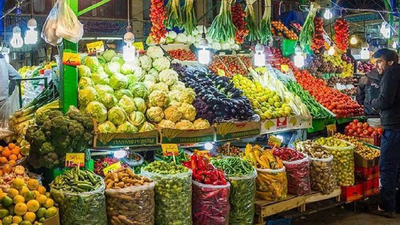
The Middle East and West Asia have emerged as vital hubs for the global trade of vegetables, fruits, medicinal plants, and industrial crops. With favorable climatic conditions for summer crops, including vegetables like pumpkin, eggplant, pepper, cabbage, corn, celery, beans, green beans, tomatoes, and cucumber, the region presents immense opportunities for importers, exporters, and B2B marketplaces. Per capita consumption of summer foods and vegetables by West Asian populations is steadily rising, driven by cultural preferences and increased health consciousness. Verified exporters and importers play a pivotal role in maintaining the supply chain integrity for these commodities. The dynamics of vegetable and summer herb markets are bolstered by platforms focusing on trade advertising, regional product listings, and business networking. Countries in West Asia are leading suppliers and consumers of greenhouse vegetables, leveraging modern agricultural methods to ensure year-round production. Additionally, the trade in fruits, such as citrus and tropical varieties, contributes significantly to economic activity. The global fruit trade showcases interconnectivity between markets, influencing regional economies and providing insights into demand fluctuations.
Medicinal plants like basil, mint, and chamomile are increasingly traded due to their therapeutic and commercial value, driving economic growth in the Middle East and West Asia. Industrial crops, such as oilseeds and fibers, are shaping commodity trade, supported by verified suppliers and efficient supply chain solutions. Animal feed and cereals also remain integral to the agricultural ecosystem, providing fodder for livestock and poultry. The fishery and ornamental flower markets add diversity to the trade landscape, fulfilling both economic and cultural demands. Platforms like Aritral simplify trade processes by offering AI-driven services such as product listing and global sales assistance, enabling seamless transactions for commodities like seeds, seedlings, and summer vegetables.
-
Native medicinal plants of West Asia

West Asia is home to a rich diversity of native medicinal plants, integral to the region"s biodiversity and traditional medicine. Countries such as Iran, Iraq, Syria, and Saudi Arabia host various indigenous species that thrive in their unique climates and soils. These plants are not only used locally for treating ailments but also play a significant role in the pharmaceutical industry due to their effective compounds. Notable examples include Ginger, Saffron, Mint, Thyme, Chamomile, Tarragon beans, and Cardamom. Each plant has specific medicinal properties; for instance, Ginger aids digestion and reduces inflammation, while Saffron serves as an antidepressant. The region"s climatic conditions contribute to the growth of these plants, which have been utilized in traditional medicine for centuries. The extraction methods for their active components may differ from modern techniques used elsewhere. The unique characteristics of West Asian medicinal plants highlight their importance in both local cultures and global markets.
-
Original wild medicinal plants

Original wild medicinal plants are those that grow naturally without human intervention, retaining their original properties. These plants are crucial for the pharmaceutical and medical industries, serving as raw materials for various treatments. Key regions for sourcing these plants include South America, Africa, Asia, and Europe. Notable examples of medicinal plants include Siberian Ginseng, Gotu Kola, St. John"s Wort, and Ginger, each known for specific health benefits such as boosting immunity or alleviating digestive issues. The use of these plants not only supports biodiversity but also provides sustainable resources for health care. Their historical significance in traditional medicine underscores their therapeutic potential and genetic diversity. As the demand for natural remedies grows, understanding the origins and benefits of these wild plants becomes increasingly important for businesses involved in the B2B marketplace across Asia and the Middle East. "
-
The most important medicinal plants in terms of economic value in the market

Medicinal plants hold significant economic value, influenced by factors such as demand, supply, and unique properties. Key plants like Digitalis, Poppy, Saffron, Ginseng, Aloe Vera, Clove, Mint, and Fennel Flower are highlighted for their strategic importance. Digitalis is crucial for heart disease treatment; Poppy is a primary source of narcotics; Saffron is valued for its anti-inflammatory properties; Ginseng boosts immunity and energy; Aloe Vera is essential in skincare; Clove aids in anxiety relief; Mint serves various health applications; and Fennel Flower is prominent in the Middle East. The strategic value of these plants can be affected by legal restrictions and environmental conditions. Countries like Iran, Turkey, and Saudi Arabia are key players in the production and trade of these medicinal plants. Market demand can fluctuate based on traditional medicine practices and scientific validation of their uses. The potential for research and development in this sector further enhances the strategic value of these plants.
-
Applications of medicinal plants in modern medicine and traditional medicine

Medicinal plants serve as vital resources in both traditional and modern medicine, offering a range of therapeutic properties. Historically, these plants have been utilized across various cultures for treating ailments through methods such as teas, extracts, and powders. In contemporary settings, the significance of medicinal plants has surged, with many active compounds being integral to drug development. Research indicates their efficacy in addressing numerous health issues, including cardiovascular diseases, cancer, and neurological disorders. Prominent pharmaceutical companies incorporate these natural compounds into their products; for instance, Digoxin from digitalis treats heart conditions, while Tamoxifen is derived from the Tamoxifen plant for breast cancer treatment. Other examples include Paclitaxel for cancer therapy and Aspirin from willow bark for inflammation relief. The extraction processes of medicinal plants yield concentrated active compounds used in various forms like tablets and capsules. Additionally, these plants are employed in herbal teas and dietary supplements. The exploration of medicinal plants continues to expand within modern medicine as ongoing research seeks to uncover their full therapeutic potential and interactions with conventional drugs.
-
What plants are called medicinal plants?

Medicinal plants, also referred to as medicinal herbs, are utilized for their therapeutic properties derived from various chemical compounds. These plants can be used in the production of medicines, nutritional supplements, and herbal remedies. Common examples include ginger, peppermint, and aloe vera, which possess antibacterial and anti-inflammatory properties. For a plant to be classified as medicinal, it must demonstrate effectiveness in treating diseases based on scientific studies and traditional use. Safety is paramount; any potential side effects must be evaluated against the benefits. Additionally, these plants should be affordable and accessible for commercial production. Medicinal plants can thrive in natural environments or controlled greenhouse conditions to ensure optimal growth. The cultivation of these plants not only supports health applications but also contributes to biodiversity preservation by maintaining wild species that may have unique medicinal properties.


























